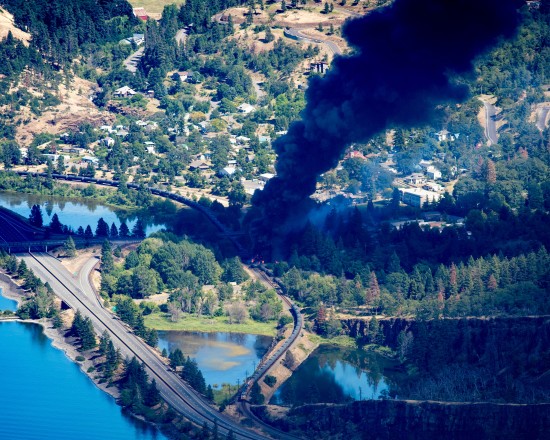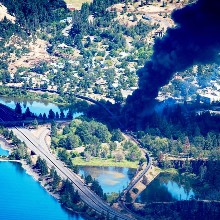— by Joe Copeland for Crosscut.com —

The oil train explosion fire near the Columbia River at Mosier. Photo courtesy of Paloma Ayala , Columbia Riverkeeper
The oil train fire happened just where it should have: Just far enough from tiny Mosier, Oregon, to spare residents any loss of life. And the fire stayed on the small side.
Things could have been much worse for Mosier. And just imagine what would happen if an oil train derailed in the middle of a major population center. The disaster could dwarf the explosion in Lac-Mégantic, Quebec, in 2013, that killed 47 people.
The National Transportation Safety Board, which investigates major transportation accidents and is charged with promoting transportation safety, has called for routing oil trains around cities “where technically feasible.” And it also mentioned the need for more investments in infrastructure. When the board issued its recommendation to look for alternate routes in January 2014, the NTSB’S chair at the time, Deborah Hersman, said that, given a dramatic shift of oil shipments to trains from pipelines, it ws vital for routes to be “well planned.”
Spokane, Vancouver, Everett and other cities in Washington state provide good examples of the dangers posed by the shift in recent years, largely spurred by the development of North Dakota’s Bakken oil fields, to the shipment of train by rail rather than pipeline.
(To read the full article, go to crosscut.com/2016/06/oil-trains-oregon-fire-risks-ntsb/)
**If you are reading theOrcasonian for free, thank your fellow islanders. If you would like to support theOrcasonian CLICK HERE to set your modestly-priced, voluntary subscription. Otherwise, no worries; we’re happy to share with you.**








